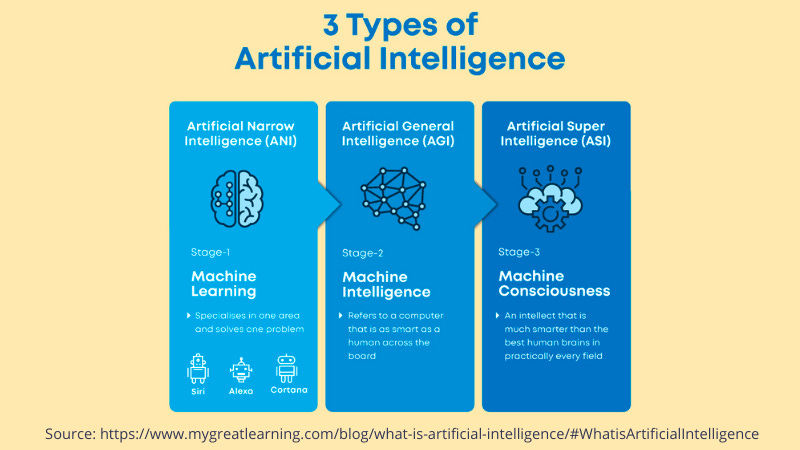Discover the Power of Machine Learning in Understanding Human Behaviour
Discover how machine learning is unlocking patterns and insights in human behaviour that were previously hidden from view

Machine learning has become an essential aspect of human life. With the advent of technology, machines are becoming more intelligent and capable of performing various human tasks. One of the main areas where machine learning is gaining importance is in the analysis of human behaviour. Understanding human behaviour is critical in many fields, such as health, psychology, sociology, and even business. Machine learning provides a unique opportunity to better understand human behaviour and improve the overall human experience.
The Basics of Machine Learning
Before we look at how machine learning can help us better understand human behaviour, it is important to understand the basics of machine learning. Machine learning is the process of teaching a machine to learn from data. It involves developing models that can learn from data and make predictions or decisions based on that data.
Machine learning techniques can be used to understand human behaviour by analysing and modelling patterns in human-generated data. Here are some of the techniques that can be used:
Supervised Learning: It is a type of machine learning that involves training a machine using labelled data. The labelled data consists of input variables (also called features) and an output variable (also called a label or target variable). The goal of supervised learning is to use the labeled data to build a model that can accurately predict the output variable for new input variables.
Unsupervised Learning: It is a type of machine learning that involves training a machine using unlabeled data. The goal of unsupervised learning is to find patterns or structures in the data. Clustering is one of the most common unsupervised learning techniques. Clustering involves grouping similar data points.
Reinforcement Learning: It is a type of machine learning that involves training a machine to make decisions based on rewards or punishments. The machine learns by trial and error, receiving feedback on its decisions in the form of rewards or punishments. The goal of reinforcement learning is to teach the machine to make decisions that maximise the rewards and minimise the punishments.
Deep Learning: Deep learning algorithms can be used to model complex human behaviours by analysing large amounts of data. For example, deep learning can model human speech and language patterns to predict sentiment or intention.
Time Series Analysis: Time series analysis can be used to analyse human behaviour over time. For example, time series analysis can be used to identify trends and patterns in website traffic data to optimise the user experience.
These techniques can be used to develop models that can help businesses and researchers better understand human behaviour and make more informed decisions. However, it is important to keep in mind that these models may have biases and limitations, and ethical considerations must be taken into account when using them to make decisions.
Applications of Machine Learning in Understanding Human Behaviour
Machine learning provides a unique opportunity to better understand human behaviour. By analysing large datasets, machine learning algorithms can identify patterns and relationships that may not be apparent to humans. Machine learning can help us better understand human behaviour in many areas, including health, psychology, sociology, and even business.
Health: Machine learning can be used to analyse health data and identify patterns that may be indicative of certain health conditions. For example, machine learning algorithms can analyse data from electronic health records and identify patients who may be at risk for developing certain health conditions. Machine learning can also be used to analyse medical imaging data, such as X-rays and MRIs, and identify patterns that may be indicative of certain health conditions.
Psychology: Machine learning can also be used to better understand human behaviour in psychology. For example, machine learning algorithms can analyse data from psychological tests and identify patterns that may be indicative of certain mental health conditions. Machine learning can also be used to analyse social media data and identify patterns that may be indicative of certain personality traits.
Sociology: Machine learning can also be used to better understand human behaviour in sociology. For example, machine learning algorithms can analyse data from social media and identify patterns that may be indicative of certain social behaviours. Machine learning can also be used to analyse demographic data and identify patterns that may be indicative of certain societal trends.
Business: Machine learning can also be used to better understand human behaviour in business. For example, machine learning algorithms can analyse customer data and identify patterns that may be indicative of certain customer behaviours. Machine learning can also be used to analyse sales data and identify patterns that may be indicative of certain sales trends.
Best Practices for Understanding Human Behaviour with Machine Learning
Understanding human behaviour is a complex task that requires a deep understanding of psychology, sociology, and other related fields. Machine learning can be a valuable tool for gaining insights into human behaviour, but it must be used appropriately. Here are some best practices for understanding human behaviour with machine learning:
Understand the limitations of machine learning: Machine learning algorithms are only as good as the data they are trained on. They are not capable of understanding human u in the same way that a human can. It is important to recognise the limitations of machine learning and use it as a tool to augment human understanding rather than replace it.
Choose appropriate data sources: The data used to train machine learning models should be diverse, representative, and relevant to the research question being asked. In the case of human behaviour, data may come from surveys, interviews, social media, or other sources.
Avoid biased data: Biased data can lead to biased outcomes. It is important to identify and remove any sources of bias in the data before using it to train a machine learning model. This includes bias related to race, gender, age, or other factors.
Use interpretability techniques: Machine learning models can be complex and difficult to interpret. It is important to use techniques such as feature importance analysis or visualisation tools to understand how the model is making its predictions. This can help identify patterns in human behaviour and provide insights into how people think and act.
Collaborate with domain experts: Machine learning experts should collaborate with domain experts such as psychologists or sociologists to ensure that the research is grounded in established theories and practices. This can help ensure that the research is valid and can be applied to real-world scenarios.
Consider ethical implications: Machine learning can have an ethical impact, especially when it comes to human behaviour. It is essential to consider issues such as privacy, consent, and data security when conducting research in this area.
Validate the results: The results of machine learning models should be validated using independent data sets or through real-world experiments. This can help ensure that the models are accurate and provide valuable insights into human behaviour.
By following these best practices, researchers can use machine learning to gain insights into human behaviour that can inform decision-making in a variety of fields, from marketing to public policy. However, it is important to recognise the limitations of machine learning and use it as a tool to augment human understanding rather than replace it.
Image source : googleimages
Challenges in Understanding Human Behaviour with Machine Learning
There are several challenges in understanding human behaviour with machine learning, including:
Lack of interpretability: Machine learning algorithms can be highly complex and difficult to interpret, making it challenging to understand how they arrived at a particular conclusion or prediction about human behaviour. This can limit the ability to gain insights into why people behave the way they do and how to influence their behaviour.
Data bias: Machine learning models rely on large datasets to learn patterns and make predictions, but these datasets can be biased and incomplete, leading to inaccurate or unfair predictions about human behaviour. For example, if the dataset used to train a model is not diverse, the model may not be able to accurately predict the behaviour of people from different backgrounds.
Ethical considerations: Understanding human behaviour with machine learning raises several ethical concerns, such as privacy, consent, and the potential for discriminatory outcomes. It is important to carefully consider the potential impact of any insights or predictions generated by machine learning models on individuals and society as a whole.
Limited scope: Machine learning models are often designed to analyse specific types of data or behaviours, which can limit their ability to provide a comprehensive understanding of human behaviour. For example, a model that only analyses social media activity may not be able to capture the full range of factors that influence human behaviour in real-world settings.
The complexity of human behaviour: Human behaviour is highly complex and influenced by a wide range of factors, including cultural norms, social context, and individual differences. It can be difficult to capture this complexity with machine learning models, which typically rely on simplified representations of human behaviour.
Conclusion
Machine learning has already shown immense potential to improve our understanding of human behaviour, and its future looks promising. By analysing vast amounts of data and detecting patterns that would be impossible for humans to see on their own, machine learning algorithms can provide insights into the complex nature of human behaviour.
One of the most important areas where machine learning can have a significant impact is the field of psychology. Machine learning algorithms can be used to analyse large datasets of human behaviour and identify patterns indicative of mental health problems or other psychological disorders. This can help doctors make more accurate diagnoses and develop more effective treatment plans.
Another area where machine learning can be used to better understand human behaviour is marketing and advertising. By analysing consumer data, machine learning algorithms can identify patterns in consumer behaviour and preferences, allowing companies to better tailor their marketing strategies to the needs and wants of their target audience.
Looking ahead, it is likely that machine learning will continue to play an increasingly important role in our understanding of human behaviour. As the field evolves and new techniques and algorithms are developed, we can expect to see even more powerful insights and applications. However, it is important to note that there are also ethical and privacy concerns that must be considered as machine learning is increasingly used to analyse human behaviour. It will be important for researchers and practitioners to continue to work together to ensure that these technologies are used responsibly and ethically.
This article was originally published on the company weblog. you can read the original one here.
Intellicy is a consultancy firm specialising in artificial intelligence solutions for organisations seeking to unlock the full potential of their data. They provide a full suite of services, from data engineering and AI consulting to comment moderation and sentiment analysis. Intellicy’s team of experts work closely with clients to identify and measure key performance indicators (KPIs) that matter most to their business, ensuring that their solutions generate tangible results. They offer cross-industry expertise and an agile delivery framework that enables them to deliver results quickly and efficiently, often in weeks rather than months. Ultimately, Intellicy helps large enterprises transform their data operations and drive business growth through artificial intelligence and machine learning.



